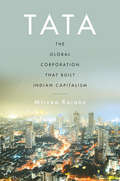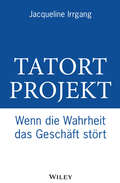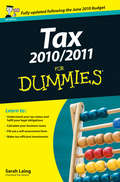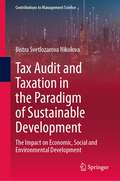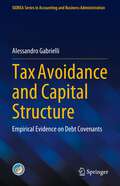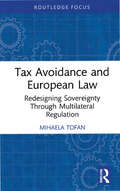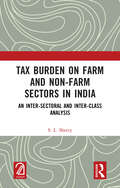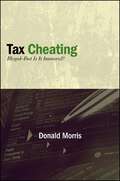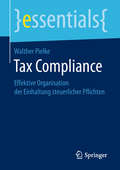- Table View
- List View
Tata Consultancy Services
by Rohit Deshpande Seth SchulmanAs CEO of Tata Consultancy Services (TCS), S. "Ram" Ramadorai had grown the company into an emerging IT services powerhouse, with marquee clients such as General Electric, offices in 32 countries, and revenues of nearly $2 billion dollars. Now, he was about to steer TCS through an initial public offering--the largest ever by a private Indian company. Despite his excitement, Ramadorai knew that in some ways the timing of the IPO was not ideal. TCS had profited tremendously from corporate America's willingness to outsource IT and business process functions to overseas providers. But outsourcing had recently come under attack, with some politicians and labor leaders denouncing it as a threat to American jobs and America's economic dominance. In addition, TCS was facing rising labor costs in India and competition from emerging IT industries in East Asia, South America, and elsewhere. How would Ramadorai address these issues to ease investors' concerns on the eve of the IPO?
Tata Consultancy Services Iberoamerica
by Gustavo A. Herrero Michael ChuTo launch its Latin American operations, the Indian IT giant Tata Consultancy Services recruits a seasoned executive who becomes the only non-Indian member of senior management. Reviews the start-up operations, from the site selection to staffing and training, the challenges of operating in a Latin American context, the integration of two very different cultures, and the strategic rationale for an emerging market company to invest in another Third World region at a time in which it is launching an initial public offering. Identifies a series of challenges that must be addressed two years on and poses the question whether Tata Consultancy Services should pause or accelerate its presence in Latin America.
Tata Group in 2021: Pursuing Profits through Purpose
by Tarun Khanna Krishna G. Palepu Vidhya MuthuramOctober 8, 2021: Tata Sons won a bid to acquire India's national carrier Air India, marking the airline's return to its original owners after 68 long years. The winning bid of $2.4 billion gave Tata Sons full ownership of the airline and its coveted network of 6,200 landing and parking slots in Indian airports and 900 slots in overseas hubs. This bid marked the end of a two-decade-long journey for the Indian government that had been trying to sell the troubled airline which, according to recent estimates, was losing nearly $3 million per day. The chairman of Tata Sons, Natarajan Chandrasekaran (Chandra), described the occasion as a "historic moment." "It will be a rare privilege for our group to own and operate the country's flag bearer airline. It will be our endeavor to build a world-class airline that makes every Indian proud." The acquisition of a heavily indebted and loss-making public sector asset raised several questions: Why did Tata Sons acquire Air India? Was it an emotional decision to regain control of an airline they had started? Was this an example of Tata Sons helping India overcome another persistent challenge, a trait well documented throughout its corporate history? Was it a commercially sound decision?
Tata Group: Driving for Multi-industry Global Leadership--A Profile of One of India's Pioneering Multinationals
by Nirmalya Kumar Pradipta K. Mohapatra Suj ChandrasekharChances are, if you had never heard of an Indian company or thought about India as anything but an outsourcing destination, you found the news of Tata Motors and its revolutionary 100,000 rupee car at least somewhat shocking. Making headlines the world over, the Nano or "People's Car" thrust Tata Group and Indian innovation into the global spotlight like never before. How did a company that began operation in the late nineteenth century with a textile mill get from there to here? This chapter examines this textbook case of a well-managed multi-billion dollar company choosing strategically advantageous avenues to global success, and profiles its substantial philanthropic efforts. This chapter is excerpted from "India's Global Powerhouses: How They Are Taking on the World."
Tata Motors in Singur: Public Purpose and Private Property (B)
by Laura Alfaro Namrata Arora Lakshmi IyerIn October 2008, Tata Motors canceled their car manufacturing plant in West Bengal state, in the face of widespread farmer protests over land acquisition issues. This meant abandoning a project in which the company had invested $300 million and delaying the launch of the Nano, the world's cheapest car. What strategy could Tata have pursued to avoid this outcome? Would similar problems arise in Gujarat state, where the project had been relocated?
Tata Motors: The Tata Ace
by Krishna G. Palepu Vishnu SrinivasanConsiders the strategy and experience of Tata Motors, India's leading commercial truck maker, as it developed a new small commercial vehicle, the Tata Ace. Positioned as a replacement for the three-wheelers that predominated as small commercial vehicles in India, the Ace create a new product category and enabled Tata Motors to access a new market segment. The company adopted tailored approaches to product design, distribution, marketing, service, and sourcing for the vehicle. After successfully targeting the niche, considers how Tata Motors might grow its presence in the segment with new models, enter new regional markets, export to developing or developed countries, and face new competition.
Tata Nano - The People's Car
by Bharat N. Anand Krishna G. Palepu Rachna TahilyaniThe case explores how Tata Motors, India's largest automobile company, developed the Nano, the world's cheapest car. The case focuses on the translation of Ratan Tata's (Chairman of Tata Motors) vision of a safe affordable car for the masses by Ravi Kant, Managing Director of Tata Motors into the Nano Project. The case raises questions around breaking the price - quality barrier and changing existing internal processes to accommodate revolutionary new ideas. The dilemma of success - Tata Nano was a runaway bestseller - left Tata Motors debating how large a bet they should make on the Nano and what kind of capacity commitment this requires.
Tata: The Global Corporation That Built Indian Capitalism
by Mircea RaianuAn eye-opening portrait of global capitalism spanning 150 years, told through the history of the Tata corporation. Nearly a century old, the grand façade of Bombay House is hard to miss in the historic business district of Mumbai. This is the iconic global headquarters of the Tata Group, a multinational corporation that produces everything from salt to software. After getting their start in the cotton and opium trades, the Tatas, a Parsi family from Navsari, Gujarat, ascended to commanding heights in the Indian economy by the time of independence in 1947. Over the course of its 150-year history Tata spun textiles, forged steel, generated hydroelectric power, and took to the skies. It also faced challenges from restive workers fighting for their rights and political leaders who sought to curb its power. In this sweeping history, Mircea Raianu tracks the fortunes of a family-run business that was born during the high noon of the British Empire and went on to capture the world’s attention with the headline-making acquisition of luxury car manufacturer Jaguar Land Rover. The growth of Tata was a complex process shaped by world historical forces: the eclipse of imperial free trade, the intertwined rise of nationalism and the developmental state, and finally the return of globalization and market liberalization. Today Tata is the leading light of one of the world’s major economies, selling steel, chemicals, food, financial services, and nearly everything else, while operating philanthropic institutions that channel expert knowledge in fields such as engineering and medicine. Based on painstaking research in the company’s archive, Tata elucidates how a titan of industry was created and what lessons its story may hold for the future of global capitalism.
Tatort Projekt: Wenn die Wahrheit das Geschäft stört
by Jacqueline IrrgangTatort Projekt? Ein Krimi? Nein, aber manchmal gibt es Projekte, da kommt man sich vor, wie in einem schlechten Film - so irrwitzig sind die Vorgänge, dass man am liebsten sofort wieder aussteigen möchte. So erging es Jacqueline Irrgang bei einem Projekt, an dem sie beteiligt war. In ihrem Buch ist Jacqueline Irrgang der Wahrheit auf der Spur. Begleiten Sie die Autorin während ihrer Zeit im Projekt. Ihre Erfahrungen sind leider kein Einzelfall und deshalb von hoher gesellschaftlicher Brisanz. Sie zeigt schonungslos auf, wie Geld verschleudert wird, an welchen Stellen es immer wieder klemmt und warum so oft die Wahrheit über fehlerhaftes Verhalten verschwiegen wird. Mutig enthüllt Jacqueline Irrgang, welche Mechanismen Projekte zum Scheitern bringen. Tatort Projekt ist ein Fachbuch für Projektmanagement und ein Enthüllungsroman zugleich. Dieses Buch bietet wertvolle Hinweise, gepaart mit einem spannenden Einblick in die Realität vieler Projekte. Lesen Sie selbst und erleben Sie zusammen mit Jacqueline Irrgang den täglichen Wahnsinn in Beratungsprojekten!
Tattered Cover Book Store: A Storied History
by Mark A. BarnhouseFor more than five decades, the Tattered Cover has been Colorado's favorite source for books. Beginning with just 950 square feet, it has grown into a multistore operation and important cultural institution, the special place where people go for all things literary. It has been a forum for ideas, with hundreds of writers visiting each year to sign books and greet readers. It has proven itself a bastion of democracy, championing the First Amendment and readers' rights to privacy. Join Denver historian and onetime Tattered Cover employee Mark A. Barnhouse as he celebrates the store's first fifty years and tells stories from the thousands of author events it has hosted over the decades.
Tattoos, Not Brands: An Entrepreneur's Guide To Smart Marketing and Business Building
by Clint White&“…illuminates one of the most misunderstood aspects of launching a company and should allow countless entrepreneurs to sleep better at night.&” — Scott Stedman, serial entrepreneur and author of Mouse, a novel. (Greenleaf Book Group)Before you start your business, before you spend a dime on marketing or hire another brand strategist, you need to consider something: You don&’t have a brand. Everyone from aspiring entrepreneurs to seasoned business titans believes in the power of branding. But the truth is, most businesses, nonprofits, charities, and social movements aren&’t brands. They are tattoos. Unlike market-driven brands, tattoos are mission-driven. And if you have a tattoo, approaching marketing from a brand mindset will prove–inevitably–unsuccessful. Drawing upon research, psychology, and decades of experience, Tattoos, Not Brands: An Entrepreneur&’s Guide to Smart Marketing and Business Building offers an innovative approach to marketing. It includes simple steps to prepare for success and identify the approach to marketing that will best work for you and your vision. Each chapter concludes with a few simple questions or exercises to help you discover the right tattoo for your business. In Tattoos, Not Brands, you&’ll learn: The tried and true foundational basics of marketing and how to make them work for your unique business or endeavor Identify your tattoo type and how to achieve authenticity with your customers and clients How to show off your tattoo and bring it to market–successfully &“A must-read for anyone who is looking to grow a business, organization, or movement. Full of smart practical guidance that reverberates universally—from luxury goods to social impact and everything in between.&” — Avenue Magazine
Tatuajes, No Marcas
by Clint WhiteA Simon & Schuster eBook. Simon & Schuster has a great book for every reader.
Tawhid and Shari'ah: A Transdisciplinary Methodological Enquiry
by Masudul Alam ChoudhuryThis book invokes the Tawhidi ontological foundation of the Qur’anic law and worldview, and is also a study of ta’wil, the esoteric meaning of Qur’anic verses. It presents a comparative analysis between the Tawhidi methodology and the contemporary subject of Shari’ah. Masudul Alam Choudhury brings about a serious criticism of the traditional understanding of Shari’ah as Islamic law contrary to the holistic socio-scientific worldview of the unity of knowledge arising from Tawhid as the law. A bold repudiation of the Islamic traditional understanding and the school of theocracy, Choudhury’s critique is in full consonance with the Qur’an and Sunnah. It is critical of the sectarian (madhab) conception of relational independence of facts. Thus the non-creative outlook of Shari’ah contrasts with universality and uniqueness of Tawhid as the analytically established law explaining the monotheistic organic unity of being and becoming in ‘everything’. This wide and strict methodological development of the Tawhidi worldview is articulated in this work. The only way that Tawhid and Shari'ah can converge as law is in terms of developing the Tawhidi methodology, purpose and objective of the universal and unique law in consonance with the ontology of Tawhid. Such a convergence in the primal ontological sense of Tawhid is termed as maqasid as-shari'ah al-Tawhid.
Tax 2010/2011 For Dummies
by Sarah LaingFully updated for the 2010/2011 tax year, this book takes the hassle out of tax Although you can't escape tax, you can make it easier to deal with. Whether you want to work out the taxes on your own business, make tax-efficient investments or simply understand where your money's going, this plain-English guide has it all. Get to grips with the UK tax system and discover how to make potentially significant savings on your tax bill. Tax facts - get the low-down on tax essentials Tax through your ages - find out how to make the most tax-savvy decisions at every stage of your life Pensions and benefits - understand the ins and outs of taxes paid on pensions and state benefits Working for someone else - keep an eye on your pay packet and make the most of incentive schemes Working for yourself - learn how to manage your company's taxes, whether you're just starting out or are a veteran business-owner Open the book and find: Advice on complying with self-assessment regulations Techniques for calculating how much income tax you owe Updates on the most tax-friendly investments for you and your children How to manage property tax, whether you're buying, selling or renting Ways to reduce inheritance tax The best way to pay VAT on your own business The tax benefits of becoming a limited company Day-to-day tax-saving techniques "Tax 2010/2011 For Dummies is expertly written in plain, everyday language that makes a complicated subject easy to understand. It's simple to follow, and full of invaluable tax tips and reminders. Highly recommended for someone looking for a straightforward introduction to the world of tax. " -Mark McLaughlin, CTA (Fellow) ATT TEP, Chartered Tax Consultant, Author and Editor Learn to: Understand your tax status and fulfil your legal obligations Calculate your business taxes Fill out a self-assessment form Make tax-efficient investments
Tax Administration Reform and Fiscal Adjustment: The Case of Indonesia (2001-07)
by Eric Le Borgne John Brondolo Carlos Silvani Frank BoschA report from the International Monetary Fund.
Tax Audit and Taxation in the Paradigm of Sustainable Development: The Impact on Economic, Social and Environmental Development (Contributions to Management Science)
by Bistra Svetlozarova NikolovaThis book discusses how taxation can contribute to a sustainable economic development. It analyses the role and functions of taxes and tax audits with special focus on sustainable development, considering not only the fiscal functions of taxes but also their economic, social, and environmental effects. The book sheds light on the impact of corporate social responsibility (CSR) on taxation and discusses principles of good governance in tax administration. The author also analyses the preconditions and indicators for cross-border tax fraud and the possibilities for counteraction. Furthermore, the book examines tax reliefs and rates, and how the different types of taxation – flat, progressive, and regressive taxes, can impact economic, social, and environmental development. In the last section, the author discusses how to achieve economic, social, and environmental effects through taxation. This book will appeal not only to academics working in this field, but also to practitioners who would like in-depth insights into these topics.
Tax Avoidance Research: Exploring Networks and Dynamics of Global Academic Collaboration (SIDREA Series in Accounting and Business Administration)
by Antonio De Vito Francesco GrossettiThis book explores the intricate realm of tax avoidance, synthesizing existing empirical literature in the field. The work starts by exploring the theoretical underpinnings of tax avoidance, dissecting its unique features compared to tax evasion. It delves into measurement methodologies and dissects the determinants contributing to its prevalence. Moreover, it analyzes the economic consequences of tax avoidance, emphasizing its impact on critical accounting issues, including financial reporting transparency, cost of capital, and firm value. Next, the book offers a foundational understanding of graph theory, unveiling the core elements of networks, such as nodes and edges. The book covers the theoretical fundamentals and addresses the practical side of constructing networks based on real-world relational systems. It emphasizes the importance of effective data collection and representation methods and underscores the importance of optimizing network layouts for enhanced visual representation. Using network analysis, the book further offers a deep dive into empirical studies on tax avoidance over the past two decades, revealing insights into the collaborative nature of this stream of research. Finally, the book summarizes the key insights of the network analysis on tax avoidance. It underscores the dynamic nature of individual authors' roles and affiliations, shedding light on the collaborative dynamics within institutions.
Tax Avoidance and Capital Structure: Empirical Evidence on Debt Covenants (SIDREA Series in Accounting and Business Administration)
by Alessandro GabrielliThis book provides a comprehensive overview of the implications of tax avoidance for a firm’s capital structure, highlighting the key role played by free cash flow and agency conflicts. First, the book provides an outline of the theories and empirical evidence concerning the role of taxes in the Theory of Capital Structure. It reviews the studies investigating the relationship between agency conflicts and capital structure. The book explores the role of free cash flow and agency conflicts in the relationship between tax avoidance and capital structure. In the final section, the results of an empirical investigation conducted on a sample of U.S. public firms are also presented. The empirical research examines whether and how tax avoidance is associated with debt covenant violation across the stages of the corporate life cycle. Specifically, the research uses the concept of the corporate life cycle stage to analyse whether and how the association between tax avoidance and debt covenant violation varies in different agency settings. Consistent with the hypotheses drawn on the Agency Theory, the findings of the empirical research suggest life cycle stages moderate the association between tax avoidance and debt covenant violation. Overall, this book sheds light on the potential implications of tax avoidance activities for a firm’s capital structure. The book will be of interest to both experienced and early-stage scholars interested in the topic. Moreover, the book will also be of interest to policymakers, investors, analysts, lenders, and other market participants.
Tax Avoidance and European Law: Redesigning Sovereignty Through Multilateral Regulation (Routledge Research in Tax Law)
by Mihaela TofanTax law is one of the legal fields with the most subtle influence on European integration and EU law. The European economic cooperation project emerged with the customs union, essentially a tax law concept, and evolved alongside other topics of tax harmonization. Still, the existence of the EU tax law is disputed. The research on the topic is significant, as the integration of national economies and markets has increased substantially, both within the EU and globally. This has put a strain on domestic tax rules, which are subject to the demands of the international taxation requirements. This book explores the relationship between tax avoidance regulation and sovereignty within the European Union, analyzing the impact of the effective regulatory methods for limiting and eliminating aggressive tax planning by the multinational companies. Focusing on analyzing good practice in fiscal regulation efficiency and the results generated by the tax jurisprudence both at national and European level, its main objective is to present the argument for inter-dependency between taxation and the current changes in the concept of sovereignty. It highlights where fiscal regulation has led to uniform, yet flexible, solutions for the actual fight against companies’ abusive fiscal conduct, when taking advantage of tax competition. This text will be of value to academics, researchers, and advanced students in tax law and tax avoidance regulation and their intersection with sovereignty in the context of the European Union.
Tax Burden on Farm and Non-farm Sectors in India: An Inter-sectoral and Inter-class Analysis
by S. L. ShettyThis book provides a detailed, comparative analysis of the relative tax burdens on the farm and non-farm sectors in India in the 1960s. It addresses the key question of mobilising the resources for transforming agriculture-dependent, backward economies into industrial economies. In a comparison with the historical experiences of Japan and the Soviet Union, this book goes against the grain of conventional thinking and argues that their systems cannot be implanted into our democratic society.Print edition not for sale in South Asia (India, Sri Lanka, Nepal, Bangladesh, Pakistan or Bhutan)
Tax Cheating: Illegal--But Is It Immoral? (Excelsior Editions)
by Donald MorrisSilver Winner, ForeWord Book of the Year in the Political Science CategoryFinalist for the 2013 Eric Hoffer Book Awards presented by Hopewell PublicationsFrom unreported gambling winnings and inflated claims of the value of clothing donated to charity to money hidden in Swiss bank accounts and high-profile tax schemes plotted by celebrities and business leaders, the range of tax cheating opportunities is wide and the boundaries and moral status can be hazy. Considering the behavior of individuals and small businesses as well as the involvement of congress and the IRS, Donald Morris combines insights from law, psychology, sociology, criminology, accounting, economics, and philosophy to examine the ethical issues surrounding tax cheating and implications for tax policy.
Tax Compliance and Risk Management: Perspectives from Central and Eastern Europe (Routledge Research in Tax Law)
by Piotr Karwat Katarzyna Kimla-Walenda Aleksander WernerThe concept of tax compliance is as old as the tax itself, but staying compliant with tax regulations has become increasingly demanding. A changing tax regulatory environment, resulting from regulatory actions of the OECD, the European Union and national governments, poses many problems for tax compliance awareness. This book explores various approaches to improving tax compliance. Starting with the procedures and processes that are at the centre of the debate, it includes the level of tax position security obtained as a result of cooperation between tax administration and an organisation, ending with tax compliance requirements imposed by one-sided action of tax administration. Offering an experience and evidence-based analysis of how tax compliance influences an organisation’s tax and financial position, the issues are examined from both a theoretical and a practical perspective, using empirical research and case studies with an international dimension for illustration. Emphasising a holistic approach to tax compliance and its role in tax risk management within an organisation, this study offers a framework for making the challenging task of tax compliance and risk management more effective and more efficient. Exploring tax compliance focusing on the tax world after the BEPS project and anti-tax evasion and anti-tax avoidance regulatory actions undertaken by the European Union and OECD, the book has a practical focus on tax system design within the organisation and will be of interest to students, researchers and practitioners working in the areas of tax law and tax compliance.
Tax Compliance and Risk Management: Perspectives from Central and Eastern Europe (Routledge Research in Tax Law)
by Piotr Karwat Katarzyna Kimla-Walenda Aleksander WernerThe concept of tax compliance is as old as the tax itself, but staying compliant with tax regulations has become increasingly demanding. A changing tax regulatory environment, resulting from regulatory actions of the OECD, the European Union and national governments, poses many problems for tax compliance awareness. This book explores various approaches to improving tax compliance. Starting with the procedures and processes that are at the centre of the debate, it includes the level of tax position security obtained as a result of cooperation between tax administration and an organisation, ending with tax compliance requirements imposed by one-sided action of tax administration. Offering an experience and evidence-based analysis of how tax compliance influences an organisation’s tax and financial position, the issues are examined from both a theoretical and a practical perspective, using empirical research and case studies with an international dimension for illustration. Emphasising a holistic approach to tax compliance and its role in tax risk management within an organisation, this study offers a framework for making the challenging task of tax compliance and risk management more effective and more efficient. Exploring tax compliance focusing on the tax world after the BEPS project and anti-tax evasion and anti-tax avoidance regulatory actions undertaken by the European Union and OECD, the book has a practical focus on tax system design within the organisation and will be of interest to students, researchers and practitioners working in the areas of tax law and tax compliance.
Tax Compliance: Effektive Organisation der Einhaltung steuerlicher Pflichten (essentials)
by Walther PielkeDieses essential vermittelt einen Überblick über die Rahmenbedingungen von Tax Compliance. Es erläutert die verschiedenen Gründe, weshalb ein Tax Compliance Management System (Tax CMS) notwendig ist und stellt Standards für ein solches System vor. Die einzelnen Bestandteile eines Tax CMS werden anhand des in Deutschland gebräuchlichsten Standards, des IDW PS 980, erläutert. Dabei werden nicht nur die Funktionen des Management Systems, sondern auch die jeweiligen Herausforderungen aus der steuerlichen Praxis beleuchtet.

